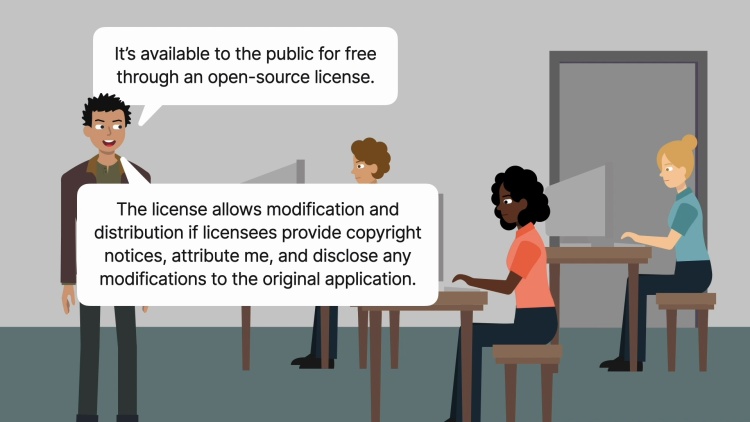Jacobsen v. Katzer
United States Court of Appeals for the Federal Circuit
535 F.3d 1373 (2008)

- Written by Cynthia (Anderson) Beeler, JD
Facts
Robert Jacobsen (plaintiff), through open-source-software group Java Model Railroad Interface (JMRI), created a computer program called DecoderPro. DecoderPro allowed enthusiasts to program model-train decoder chips. The program was available on a site for open-source-software collaboration called SourceForge. DecoderPro could be downloaded from the site and was free to use. However, the downloadable files contained notices of Jacobsen’s copyright and referred users to a file stating the terms of the open-source copyright license. That license granted users the right to copy, modify, or distribute the software provided that the user added a note to each code change explaining the change and either (1) made the modifications freely available to others, (2) used the modified software only within the user’s company, (3) renamed and explained nonstandard executables, or (4) made other distribution arrangements with Jacobsen as the copyright holder. Additionally, users were required to include a notice of attribution identifying the portions of code used from DecoderPro. Matthew Katzer and Kamind Associates, Inc. (collectively, Katzer) (defendants) downloaded the DecoderPro code and modified a portion for use in their competing computer program, Decoder Commander. Katzer’s program did not comply with any of the license requirements for code modifications, and Katzer did not negotiate alternate terms with Jacobsen. In addition, Decoder Commander did not include attribution notices. Jacobsen sued Katzer for copyright infringement. Katzer argued that he could not be liable for copyright infringement because he had a license to use the open-source DecoderPro software. The district court held in Katzer’s favor. Jacobsen appealed.
Rule of Law
Issue
Holding and Reasoning (Hochberg, J.)
What to do next…
Here's why 904,000 law students have relied on our case briefs:
- Written by law professors and practitioners, not other law students. 47,100 briefs, keyed to 995 casebooks. Top-notch customer support.
- The right amount of information, includes the facts, issues, rule of law, holding and reasoning, and any concurrences and dissents.
- Access in your classes, works on your mobile and tablet. Massive library of related video lessons and high quality multiple-choice questions.
- Easy to use, uniform format for every case brief. Written in plain English, not in legalese. Our briefs summarize and simplify; they don’t just repeat the court’s language.





